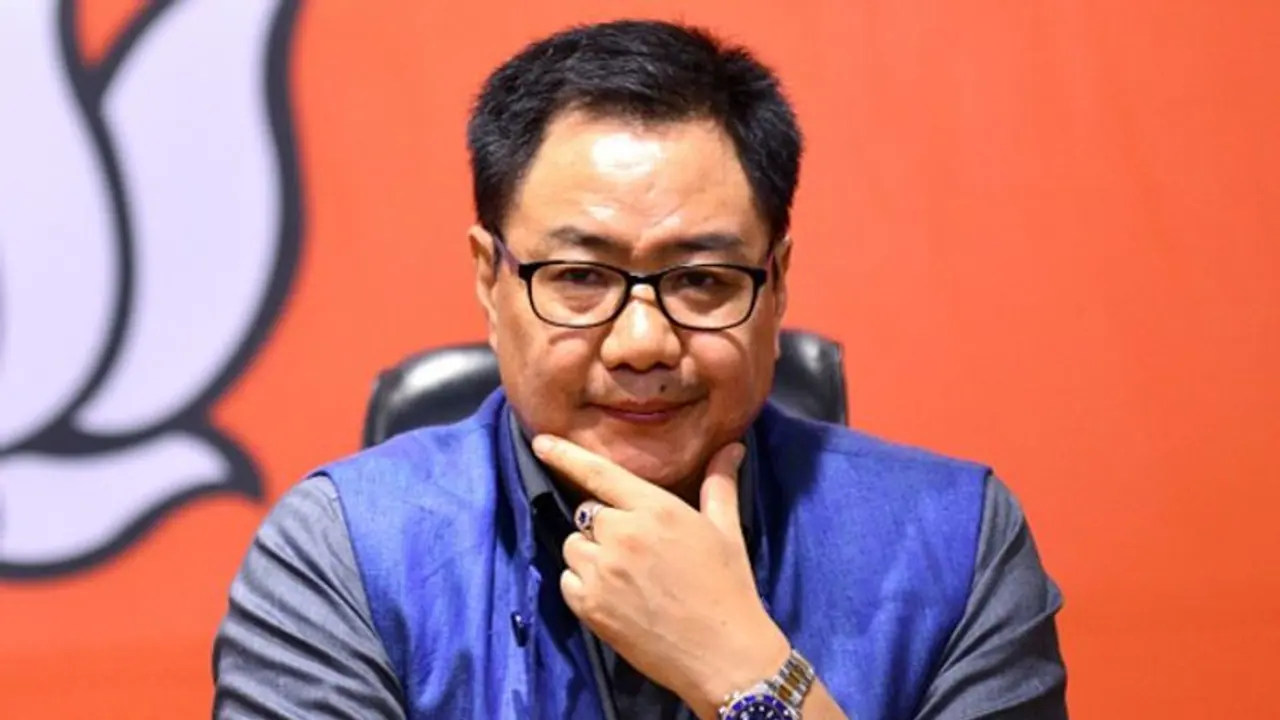"I am aware that the country's people are dissatisfied with the collegium system of judicial appointment; however, if we follow the spirit of the Constitution, appointing judges is the government's responsibility," said Kiren Rijiju.
Union Law and Justice Minister Kiren Rijiju said that the country's people are dissatisfied with the collegium system and that it is the government's responsibility to appoint judges in accordance with the spirit of the Constitution.

Speaking at 'Sabarmati Samvad,' an event organised by 'Panchjanya,' a weekly magazine published by the RSS, in Ahmedabad on Monday, he said he has observed that half of the time judges are 'preoccupied' with deciding appointments, causing their primary job of delivering justice to 'suffer.'
The minister's comments came after he stated at a conference in Jaipur last month that the collegium system of appointment to the higher judiciary needs to be reconsidered.
While responding to a question on the CJI appointment process, Rijiju said, "Until 1993, every judge in India was appointed by the Law Ministry in consultation with the Chief Justice of India, and we had very eminent judges at the time."
"The Constitution is clear on this: it says the President of India will appoint judges, which means the law ministry will appoint judges in consultation with the Chief Justice of India," he explained.
"The Supreme Court defined consultation as concurrence in 1993, and no other field has been defined as concurrence except in judicial appointments," he added that the judiciary expanded the collegium system in 1998.
The Supreme Court collegium is led by the Chief Justice of India and consists of the court's four most senior judges.
While the government may object or seek clarification on the collegium's recommendations, the procedure requires it to clear the names of the five-member body and reiterates them.
"I am aware that the country's people are dissatisfied with the collegium system of judicial appointment; however, if we follow the spirit of the Constitution, appointing judges is the government's responsibility," he said.
"Second, except in India, judges appoint their brothers as judges. Third, as Law Minister, I have observed that half of the time and minds of judges are preoccupied with deciding who will be the next judge, while their primary work is to give justice, which suffers as a result of this practise," he said.
Additionally, he continued, "The process of selecting judges is so intensely consultative that, I'm sad to say, groupism emerges; people can sense politics among leaders, but they are unaware of the politics within the judiciary."
Rijiju stated that it is the law ministry's responsibility to ensure that the person whose name has been recommended for appointment by the collegium is qualified to serve as a Supreme Court or high court judge.
"A judge is above criticism if he or she is not involved in the selection of another judge," he said. "However, if he or she is involved in administrative work, he or she is not above criticism."
In 2014, the NDA administration tried to alter the process for choosing judges.
The National Judicial Appointments Commission (NJAC) Act, introduced in 2014, would have given the executive a significant role in appointing judges to the higher judiciary. However, the Supreme Court overturned it in 2015.
In response to a question about judicial activism, Rijiju stated, "Several judges pass observations that never become part of the judgement."
During my consultations, I asked them to refrain from doing so, especially when live court proceedings are streamed. The people are passing judgement on them."
"As a judge, you may be unaware of the practical difficulties or financial implications of the order you issue," he explained.
"There are three pillars: the executive, the legislature, and the judiciary." The judiciary constrains and regulates the executive and legislature. "However, there is no mechanism to control the judiciary if it goes astray," he said.
"During my consultations, I asked them to refrain from doing so, especially when court proceedings are being streamed live. The people are passing judgement on them. As a judge, you may be unaware of the practical difficulties or financial implications of the order you issue," he explained.
"There are three pillars: the executive, the legislature, and the judiciary." The judiciary constrains and regulates the executive and legislature. However, there is no mechanism to control the judiciary if it goes astray," he said.
